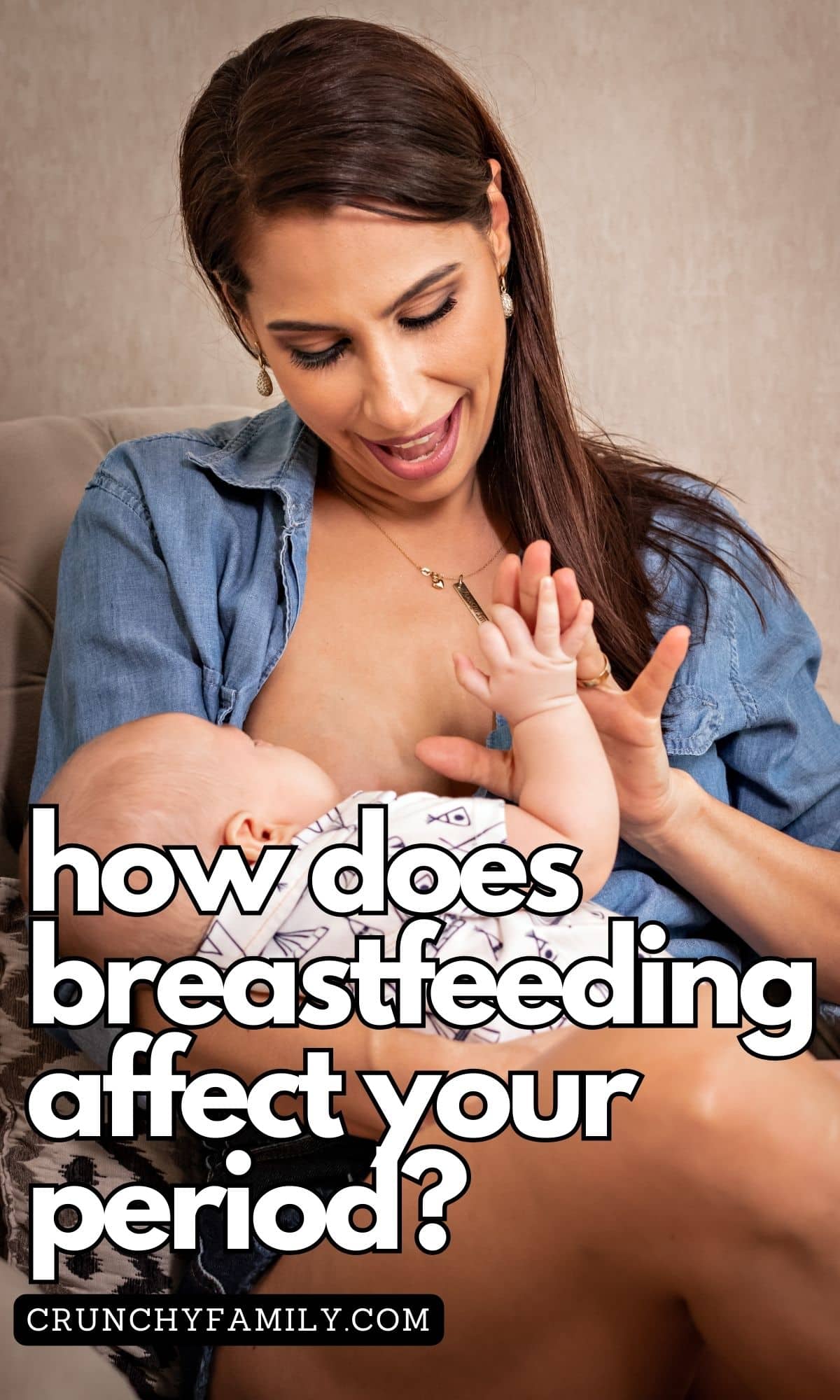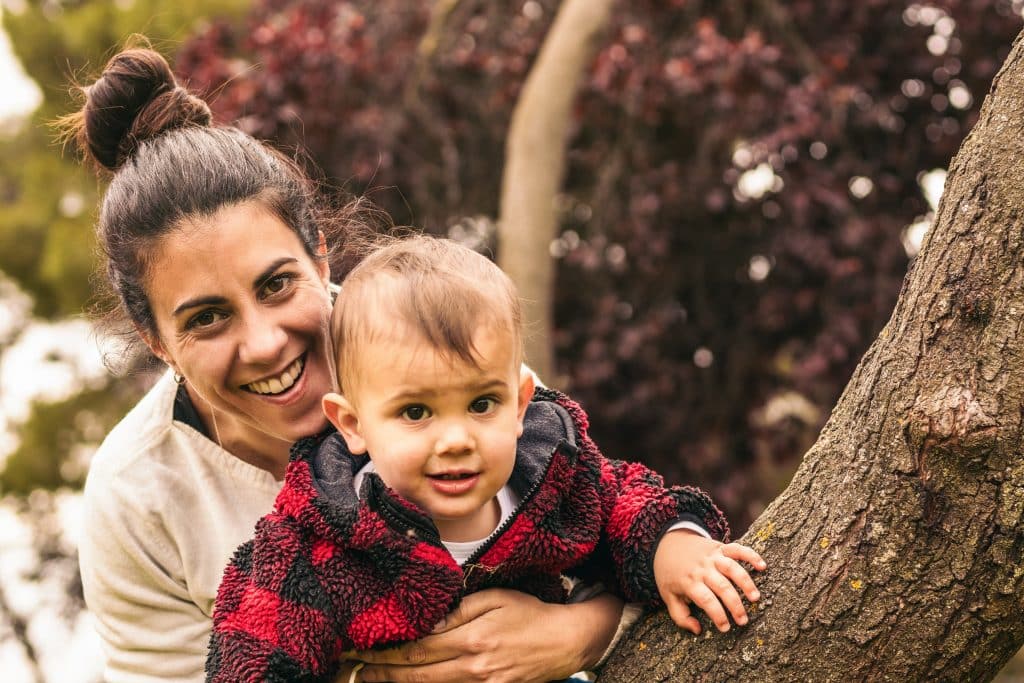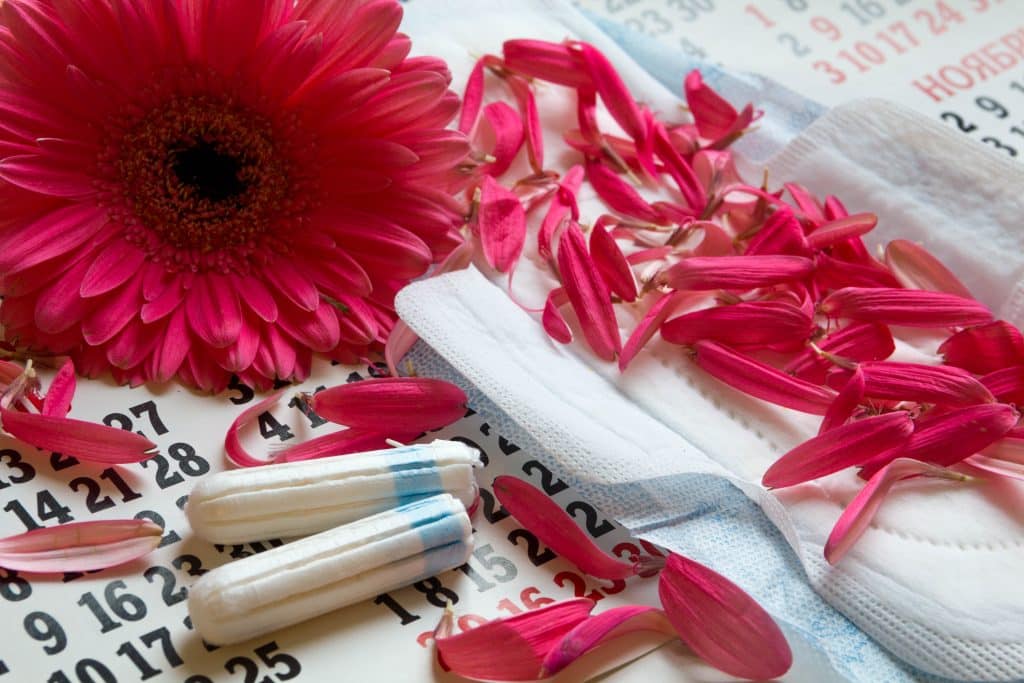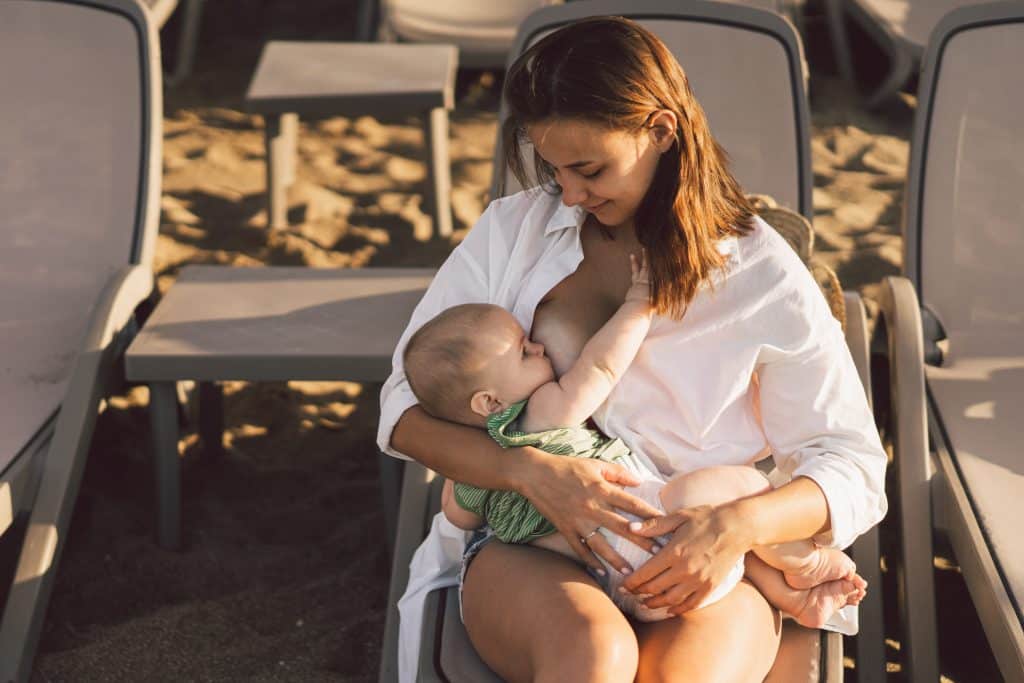Today, we’re talking about something that many new moms wonder about: the return of your menstrual cycle while breastfeeding. Whether you’re feeding your newborn in the wee hours of the night or juggling the dietary needs of a toddler, it can be a journey full of surprises, including how breastfeeding affects your periods.
Can your period start and stop while breastfeeding? Yes it’s quite normal to be irregular while still breastfeeding your baby or toddler, and it’a also normal for your first period to take a while to come if you’re exclusively breastfeeding after birth.
Let’s talk about this and other common questions related to the issue of your period returning during breastfeeding.

When it comes to the return of your period post-baby, experiences can vary widely among breastfeeding mothers. Personally, while nursing my little ones—some until three—my menstrual cycle definitely felt like it was on a roller coaster. And you know what? That’s totally normal, and is due to hormonal changes.
Firstly, many new moms notice that their period stays away for the first few months postpartum, especially during exclusive breastfeeding.

This natural phenomenon is part of what’s known as lactational amenorrhea, and so following on from that the lactational amenorrhea method is a form of birth control that hinges on the hormonal changes triggered by breastfeeding. The key hormone here is prolactin, the milk-making hormone, which also suppresses the release of hormones necessary for the menstrual cycle.
Amenorrhea means a lack of menstrual period, so lactational amenorrhea literally just means a lack of having a period due to breastfeeding.
So – does this mean that exclusive breastfeeding is a reliable birth control method? Well not really, because you never know and you will ovulate before your period returns so there’s always a chance that you will catch this and end up with a new pregnancy. So don’t rely on it s a method of birth control unless you’re happy to take some chances.
However, once breastfeeding isn’t exclusive anymore—like when you introduce solid foods or if the frequency of feedings decreases—hormone levels adjust. This can lead to the return of your period.
But don’t be surprised if things are a bit unpredictable. Irregular periods are a common guest in this postpartum party, with patterns often varying in duration and flow, and sometimes even after you started introducing solid food your normal periods don’t come back yet.
It’s also possible to have a non-ovulatory period, and it’s quite common, especially among certain groups like adolescents whose menstrual cycles are still normalizing, or women approaching menopause. This just means when you have vaginal bleeding just like your period but you didn’t actually ovulate this month.

As mentioned earlier, the hormone prolactin involved in breast milk production can suppress ovulation, leading to non-ovulatory cycles.
If you’re in touch with your body, you might be able to recognise if ovulation is happening – otherwise, some people can’t tell and unless you’re ttc, then you can just leave it and let your hormones balance themselves out in their own time.
So, what’s normal? From light bleeding to the occasional appearance of blood clots, menstrual bleeding can range widely. Some moms report spotting or light bleeding while others have bright red bleeding or large clots which can be startling, but they often fall within the spectrum of normal postpartum changes.
If you’re concerned about heavy bleeding or large clots, it’s wise to casually bring it up with your healthcare provider, just to be on the safe side. If you’re worried about the delay in your return of menstruation you can also ask about this.

Personally I wouldn’t worry at all during the first year after baby’s birth – it is so common! Especially if you have a baby that spends a lot of time on the boob for comfort, and breastfeeds frequently, it’s normally as your milk supply drops that you start to see a return to something closer to your regular menstrual cycle.
Anecdotally, a lot of breastfeeding co-sleeping moms see their period return a little later, as the feeding in the middle of the night seems affect the release of the hormones, and keep the first real period at bay for longer. Of course everyone is different and this may not be the case for every mom.
Embrace the Unpredictability. Remember, each breastfeeding journey is unique. While some may not see their period for many months, others might find their cycle returning sporadically after just a few. Both scenarios are perfectly natural.

Breastfeeding is often called the womanly art for good reason—it’s a deeply personal, sometimes challenging, but ultimately beautiful endeavor. Whether you’re dealing with nipple tenderness or wondering about birth control options during this special time, know that you’re doing an incredible job. Listen to your body, trust your instincts, and continue to seek out the supportive community of fellow moms who are navigating the same beautiful, chaotic path.
Related: When Does Breastfeeding Get Easier?
Here at Crunchy Family, we’re all about embracing these natural, physiological differences with open arms and lots of heart.
So, whether your first postpartum period has returned or you’re still in the waiting game, take a moment to marvel at the amazing work your body is doing. And as always, we’re here to chat, share experiences, and support each other every step of the way.
More Breastfeeding Advice
- Pros and Cons Of Extended Breastfeeding: A Personal Journey
- What is the 2 Shirt Method of Breastfeeding?
- 8 Tips For Increasing Your Milk Supply
- When Does Breastfeeding Get Easier?
1 thought on “Can your period start and stop while breastfeeding? What’s normal?”